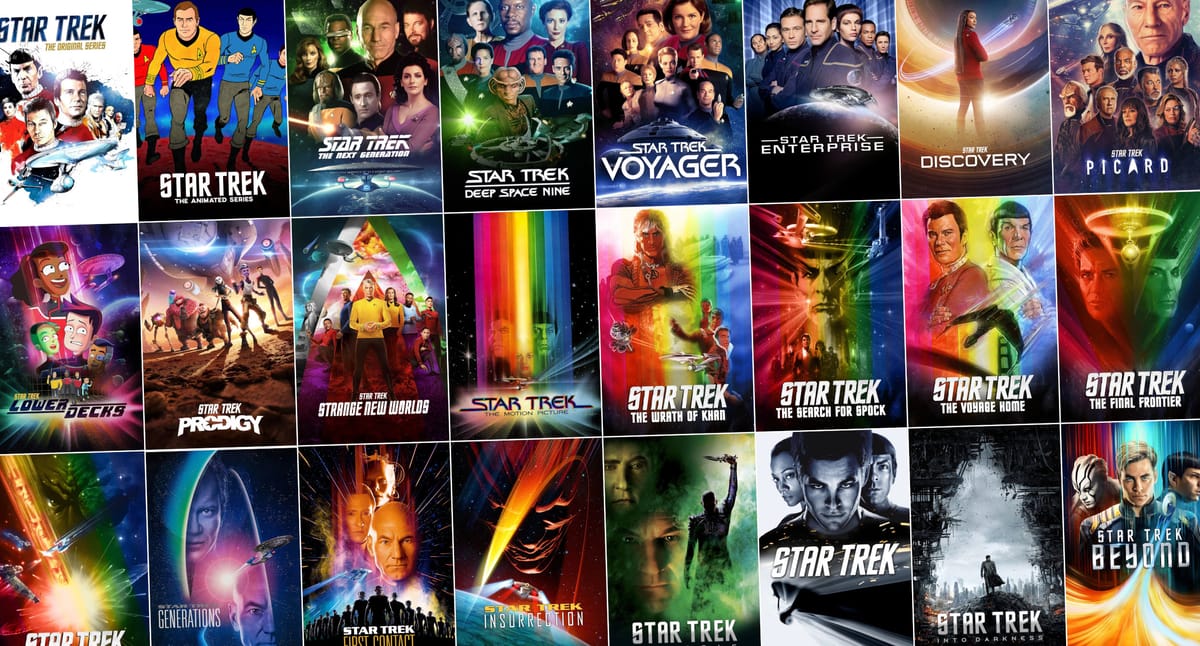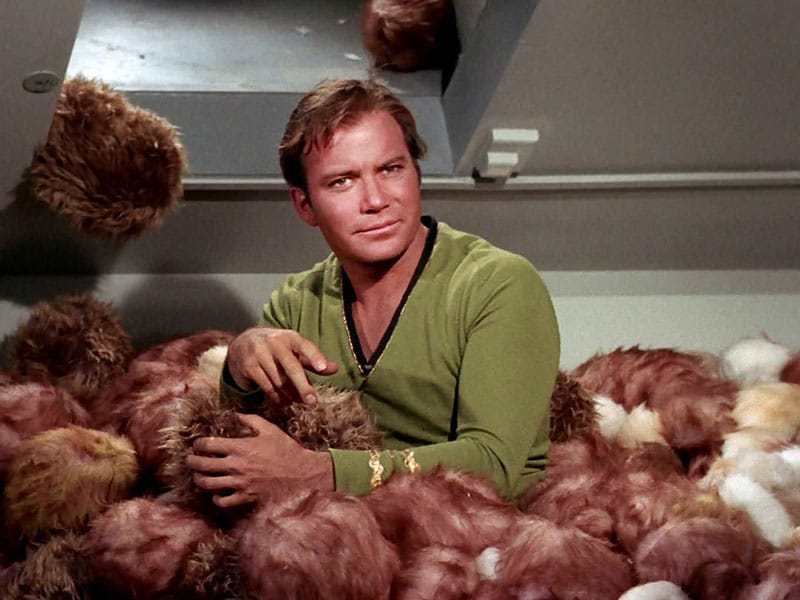Congratulations! You Have a Master's in Star Trek
690 hours later, you deserve letters after your name 🖖

Dear Trekkie fellow, have you ever wondered how much time we have really spent watching Star Trek? Well, raise shields and brace for impact: it adds up to approximately 690 hours. That’s more than 28 full days of interstellar travel, phaser blasts, and philosophical arguments with weird life forms (or even androids). The tables below contain the details of this calculation. To put it in perspective, that’s about the same time as a Master’s Degree.
Let’s break it down: A typical one-year Master’s program spans about 60 ECTS, translating into roughly 600 contact hours in class. On top of that, you must add readings, study time, assignments, etc. Now imagine replacing all that with 690 hours of immersive Federation lore. We had intensive courses on Klingon diplomacy, Ferengi markets, Vulcan logic, time-travel paradoxes, warp theory, xenobiology, teletransporter technology, 3D chess, and advanced leadership training under Captain Picard’s orders (definitely my favorite). We also learned how to “cheat” in exams with style, à la Kobayashi Maru.
\begin{array}{l|cccc|c} \textbf{Series Name} & \textbf{Release} & \textbf{Seasons} & \textbf{Episodes} & \textbf{Runtime (min)} & \textbf{Total (hrs)} \\ \hline \text{Star Trek: The Original Series} & 1966 & 3 & 79 & 50 & 65.8 \\ \text{Star Trek: The Animated Series} & 1973 & 2 & 22 & 24 & 8.8 \\ \text{Star Trek: The Next Generation} & 1987 & 7 & 178 & 45 & 133.5 \\ \text{Star Trek: Deep Space Nine} & 1993 & 7 & 176 & 45 & 132.0 \\ \text{Star Trek: Voyager} & 1995 & 7 & 172 & 45 & 129.0 \\ \text{Star Trek: Enterprise} & 2001 & 4 & 98 & 42 & 68.6 \\ \text{Star Trek: Discovery} & 2017 & 5 & 65 & 42 & 45.5 \\ \text{Star Trek: Short Treks} & 2018 & 2 & 10 & 15 & 2.5 \\ \text{Star Trek: Picard} & 2020 & 3 & 30 & 50 & 25.0 \\ \text{Star Trek: Lower Decks} & 2020 & 5 & 50 & 24 & 20.0 \\ \text{Star Trek: Prodigy} & 2021 & 2 & 40 & 24 & 16.0 \\ \text{Star Trek: Strange New Worlds} & 2022 & 2 & 20 & 50 & 16.7 \\ \text{Star Trek: Very Short Treks} & 2023 & 1 & 5 & 5 & 0.4 \\ \hline \textbf{Total} & & & & & \textcolor{red}{\textbf{663.4 hrs}} \\ \end{array}
\begin{array}{l|c|c} \textbf{Title} & \textbf{Release} & \textbf{Runtime (min)} \\ \hline \text{Star Trek: The Motion Picture} & 1979 & 132 \\ \text{Star Trek II: The Wrath of Khan} & 1982 & 113 \\ \text{Star Trek III: The Search for Spock} & 1984 & 105 \\ \text{Star Trek IV: The Voyage Home} & 1986 & 122 \\ \text{Star Trek V: The Final Frontier} & 1989 & 106 \\ \text{Star Trek VI: The Undiscovered Country} & 1991 & 110 \\ \hline \text{Star Trek: Generations} & 1994 & 118 \\ \text{Star Trek: First Contact} & 1996 & 111 \\ \text{Star Trek: Insurrection} & 1998 & 103 \\ \text{Star Trek: Nemesis} & 2002 & 117 \\ \hline \text{Star Trek} & 2009 & 127 \\ \text{Star Trek Into Darkness} & 2013 & 132 \\ \text{Star Trek Beyond} & 2016 & 122 \\ \text{Star Trek: Section 31} & 2025 & 95 \\ \hline \textbf{Total} & & \textcolor{red}{\textbf{26.9 hrs}} \\ \end{array}
Star Trek fans aren’t just watching TV. This endeavour sounds to me just as rigorous as a master’s degree, but it is a lot more entertaining. We studied politics, diplomacy, philosophy, ethics, and an exhaustive taxonomy of quantum particles and anomalies with eccentric names. We can also explain why having Tribbles as pets is such a lousy idea.

We watched those shows with more focus and dedication than many graduate students today, whose attention span is about as short-lived as redshirts on away missions. If you’ve made it through every movie and series, from The Original Series to Strange New Worlds, congratulations! You are not alone. We might not get a cadet rank or a well-deserved diploma, but we have spent about the same time studying the future of humanity, one episode at a time. And along the way, we have learned how to boldly go where no one has before.
Data from Wikipedia. Images Paramount Global.





